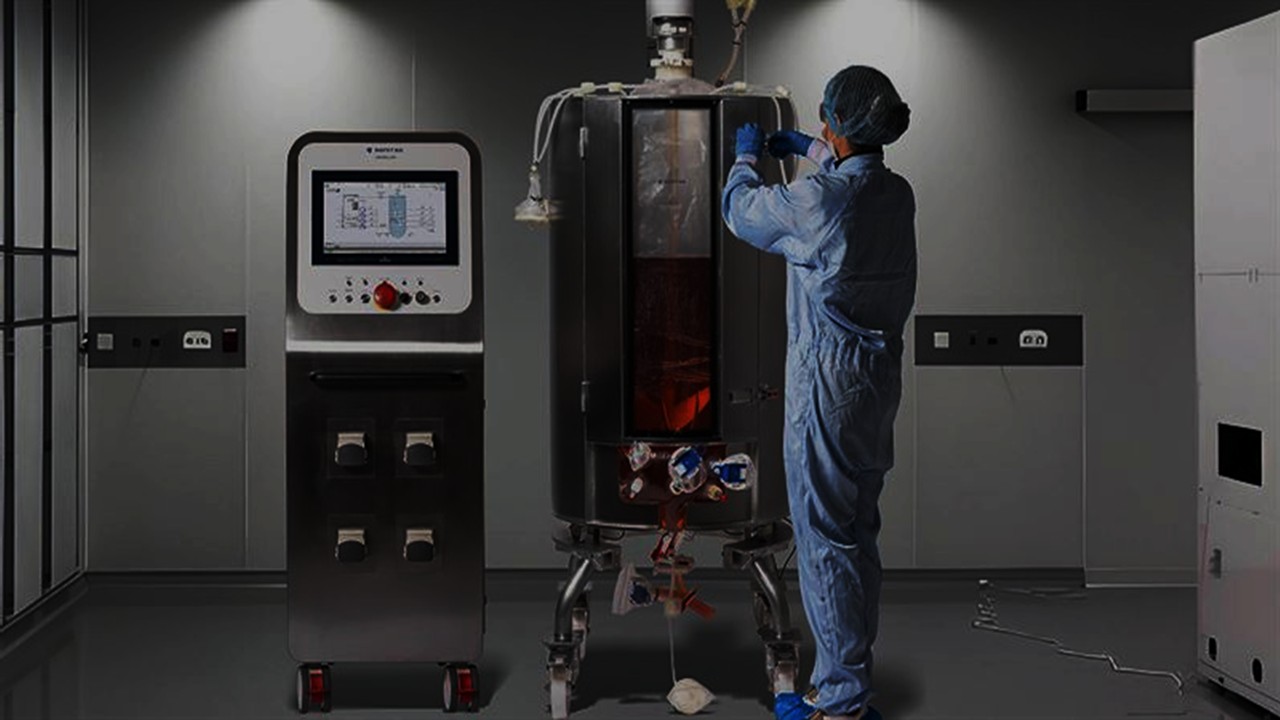In recent years, the clinical trials landscape has undergone a profound transformation, accelerated by the challenges posed by the COVID-19 pandemic. Decentralized clinical trials, where health assessments are conducted remotely in participants’ homes, have emerged as a promising solution to longstanding recruitment and retention issues in the industry. The shift towards decentralization has opened up new avenues for recruiting diverse patient populations, but it also places additional responsibilities on trial participants. This article explores how artificial intelligence (AI) is poised to drive the next wave of innovation in decentralized clinical trials, addressing user interface shortcomings and streamlining data collection.
Enhancing Participant Engagement with Reinforcement Learning
One of the key challenges in decentralized clinical trials is maintaining participant adherence to data collection protocols, especially when it involves frequent electronic clinical outcome assessments (eCOA). Excessive notifications can overwhelm participants, leading to dropout or inaccurate data entry. Here, reinforcement learning, a subset of AI, comes to the rescue. This process involves AI algorithms continuously assessing multiple parameters to deliver a personalized and optimized user experience.
Time of Day
One critical parameter that AI takes into account is the time of day. People have different daily routines and periods of peak alertness or availability. AI algorithms analyze each participant’s historical data to determine when they are most likely to be responsive and attentive. For instance, some participants might prefer receiving notifications in the morning, while others may find evening reminders more effective. By aligning notifications with participants’ preferred times, AI minimizes interruptions and maximizes the likelihood of prompt responses.
GPS Location
GPS data is another valuable parameter that AI leverages. For participants in decentralized clinical trials, their location can vary widely throughout the day. AI can use this information to deliver context-aware notifications. For example, if a participant is at a specific clinic site for an in-person visit, the AI may hold off on sending certain notifications, as the participant’s immediate focus is on the clinic visit. Conversely, if a participant is at home, AI can send reminders for eCOA tasks, knowing that the participant is in a conducive environment for data entry.
Past Responses
One of the most powerful aspects of AI is its ability to learn from past interactions. AI algorithms analyze how participants have responded to previous notifications and adapt future messages accordingly. If a participant consistently responds positively to motivational messages but tends to ignore deadline reminders, AI can fine-tune its approach. It might send more motivational messages to that participant to boost engagement and reduce the frequency of deadline reminders. This personalized approach caters to each participant’s preferences and maximizes their adherence to the eCOA tasks.
Benefits for Clinical Trial Participants
By considering these parameters and personalizing notifications, AI creates a more harmonious and engaging experience for clinical trial participants. Here are some key benefits:
Minimized Interruptions: Participants receive notifications when they are most likely to be receptive, reducing the chances of disruptions during their daily activities. This minimizes frustration and ensures that notifications are seen as helpful rather than intrusive.
Improved Compliance: Personalized notifications increase the likelihood of participants completing eCOA tasks on time. When reminders align with their preferences and routines, participants are more motivated to engage consistently with the trial requirements.
Enhanced User Experience: AI’s ability to adapt to each participant’s behavior and preferences fosters a sense of empowerment and engagement. Participants feel that the trial accommodates their needs and respects their time, contributing to a positive user experience.
By assessing various parameters like time of day, GPS location, and past responses, AI algorithms can tailor notifications to each participant. This approach minimizes unnecessary interruptions while maximizing the completion of eCOA tasks, ensuring a smoother and more engaging experience for trial participants.
Streamlining Image and Video Submissions with Computer Vision
In many clinical trials, participants are required to submit images and videos captured with their smartphones or tablets, often for dermatological, neurological, or behavioral assessments. However, capturing these media can be challenging due to specific requirements like zoom, angle, and lighting. Enter computer vision, another AI domain. This technology, already in use in applications like mobile banking, can guide participants in real-time, offering suggestions to improve image and video quality. This not only enhances the user experience but also reduces the need for post-hoc quality control, saving valuable time in the trial process.
Revolutionizing Mobility Assessments with AI Models
The integration of artificial intelligence (AI) into clinical trials, particularly in the context of wearable sensors and mobility data collection, promises a transformative solution to the challenges associated with traditional sensor-based approaches. Many clinical trials require participants to wear multiple sensors all over their bodies to gather comprehensive mobility data. While this method can yield valuable insights, it comes with several drawbacks that AI models designed for temporal data analysis aim to address.
Challenges with Traditional Sensor-Based Data Collection
Time-Consuming: Outfitting participants with numerous sensors can be a time-consuming process. Clinical trial personnel often need to apply these sensors, which can be a time-intensive task.
Error-Prone: Ensuring that sensors are correctly positioned and configured is crucial for accurate data collection. Human error in applying and calibrating sensors can lead to inaccuracies.
Burden on Participants: Wearing multiple sensors can be burdensome for participants, potentially affecting their comfort and compliance. This burden can result in dropout rates or participants not wearing sensors consistently.
Limited Mobility: The presence of numerous sensors on the body may restrict participants’ natural movements, potentially affecting the quality of data collected in real-world scenarios.
AI Models for Temporal Data Analysis
AI models designed for temporal data analysis offer a novel approach to overcome these challenges. These models leverage machine learning techniques to analyze data collected over time, and they can be particularly effective in the following ways:
Inference of Movement Patterns: AI models can learn to infer movement patterns at one part of the body using data from another part. For instance, if a participant is wearing sensors on their wrists and ankles, AI can analyze the data from the wrists to make inferences about leg movement. This reduces the need for an extensive array of sensors and simplifies the data collection process.
Estimation of Clinical Outcomes: In some cases, AI models can go beyond tracking movement and directly estimate clinical outcomes of interest. For example, for individuals with Parkinson’s disease, AI can detect freezing-of-gait events using data from a single sensor. This capability eliminates the need for a complex setup of sensors and offers continuous monitoring in everyday environments.
Continuous Monitoring: AI-powered solutions enable continuous monitoring of participants in their natural settings. Rather than relying on periodic in-clinic assessments, AI can capture data continuously, providing a more comprehensive view of participants’ health and mobility over time. This continuous monitoring is particularly valuable for capturing rare health events or subtle changes in condition.
Benefits for Clinical Trials
The adoption of AI models for temporal data analysis in clinical trials offers several advantages:
Simplified Data Collection: Participants experience a streamlined and less intrusive data collection process, reducing the burden associated with wearing multiple sensors.
Enhanced Data Accuracy: AI-driven inference and estimation techniques can improve the accuracy of collected data by minimizing human errors and sensor misplacements.
Improved Participant Compliance: Participants are more likely to adhere to data collection protocols when the process is less burdensome, resulting in higher-quality data.
Continuous Monitoring: AI enables real-time, continuous monitoring of participants, which can lead to early detection of health events and a deeper understanding of disease progression.
Clinical Trials, Revolutionized!
As the clinical trials industry continues to evolve towards decentralization, AI stands as a powerful ally, driving user-centric improvements and simplifying data collection. By optimizing notifications, providing real-time guidance for image and video submissions, and reducing reliance on wearable sensors, AI not only enhances participant engagement but also holds the potential to revolutionize how we conduct clinical trials. The fusion of AI and decentralized trials promises to make clinical research more accessible, efficient, and participant-friendly than ever before.
Engr. Dex Marco Tiu Guibelondo, B.Sc. Pharm, R.Ph., B.Sc. CpE
Subscribe
to get our
LATEST NEWS
Related Posts

AI, Data & Technology
Graph Theory Meets the Genome: How AI is Rewriting the Future of Drug Discovery
AI is not replacing scientists. It is rebuilding the laboratory itself—line by line, node by node, graph by graph.

AI, Data & Technology
Cold Chains and Invisible Threads: Real-Time Monitoring Systems are Redefining API Logistics
The endgame for real-time monitoring of API shipments is not the device or the dashboard, but a harmonized digital infrastructure that renders temperature excursions obsolete through preemptive foresight.
Read More Articles
Mini Organs, Major Breakthroughs: How Chemical Innovation and Organoids Are Transforming Drug Discovery
By merging chemical innovation with liver organoids and microfluidics, researchers are transforming drug discovery into a biologically precise, patient-informed, and toxicity-aware process.
Tetravalent Vaccines: The Power of Multivalent E Dimers on Liposomes to Eliminate Immune Interference in Dengue
For the first time, a dengue vaccine candidate has demonstrated the elusive trifecta of broad coverage, balanced immunity, and minimal enhancement risk,













